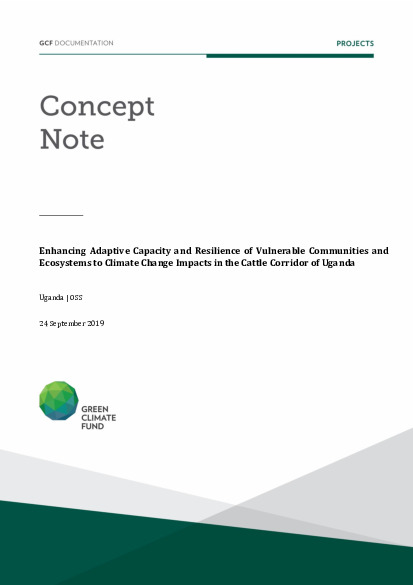Enhancing Adaptive Capacity and Resilience of Vulnerable Communities and Ecosystems to Climate Change Impacts in the Cattle Corridor of Uganda

Enhancing Adaptive Capacity and Resilience of Vulnerable Communities and Ecosystems to Climate Change Impacts in the Cattle Corridor of Uganda
Uganda's Cattle Corridor is most affected by climate change. The corridor stretches from south-western to north-eastern Uganda. It is characterised by livestock production, scarce water and pastures. Although it is vulnerable to climate change, it remains relevant to national and local food security. There is urgent need to support local communities mainly subsistence farmers and pastoralists to deal with the impacts of climate change because of their low coping capacity. The main objective is to contribute to Climate Resilience through improved water and food security in the agriculture, water and environment sectors of Uganda. Specifically, the project will: Strengthen capacities of institutions in the sector and support smallholder farmers and pastoralists to undertake adaptation actions to improve the productive capacity of ecosystems, crop and livestock systems and undertake income generating activities; and facilitate knowledge management through information sharing.